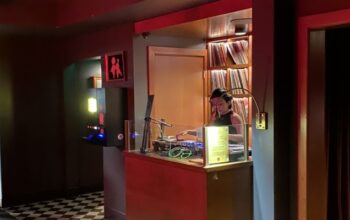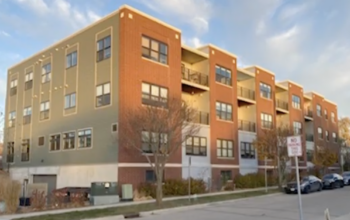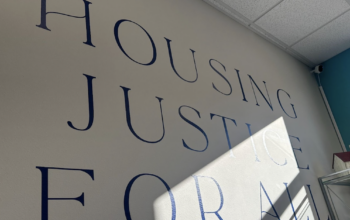On May 16 the University of Wisconsin - Madison launched The Alliance for the American Dream, which is a collaboration between the community and the university to produce ideas to increase the net income of 10,000 Dane County families by 10 percent by the year 2020.
Although the median income in the county is about $65,000 with only 3 percent unemployment, there are racial and geographic disparities. United Way of Dane County said the black household median income is below $30,000 and the minority unemployment rate is over 20 percent.
Schmidt Futures is funding the project, which is called the DreamUp Wisconsin Initiative. It is led by the Institute for Research on Poverty at UW-Madison. IRP is the nation’s longest-standing center for poverty research, and currently serves as the national Poverty Research Center, funded by the U.S. Department of Health and Human Services.
The school is one of four universities chosen to participate in the program in its inaugural run. The other three are Arizona State University, Ohio State University and the University of Utah.
“The UW–Madison community has long been a pioneer in thinking about new ways to lift people out of poverty,” said Eric Schmidt, former CEO of Google, technical advisor to Alphabet, a member of its board of directors, and former executive chairman in the original announcement. “We are excited to support them as they fuel an innovation engine to help distressed communities and expand the middle class.”
The DreamUp Initiative is looking for a minimum of 10 proposals from the community by this fall on ways to raise the median family household income by 10 percent in Dane County. The initiative is looking for proposals on topics, such as how to reduce the costs of public transportation, how to increase financial literacy and budgeting skills, how to increase access to education and training, and how to lower cost of living to keep more money in the pockets of residents.
All of the proposals must focus on collaborating with UW campuses and have to include increasing average income while decreasing costs of living.
Schmidt Futures want “big, innovative ideas”— and do not want to limit ideas with very specific criteria or budgetary constraints.
“They want folks to be innovative, to think outside the box and to really create something big,” said Peng Her, the Community Relations Coordinator for the DreamUp Wisconsin Initiative. “It could be $2 million idea, but if Schmidt Futures says it's only a million dollar idea, someone would have to scale down their proposal. Contrastly, if someone had a $500,000 idea but the grant was for a million dollars they would have to add another $500,000 to get to the million.”
The proposals should also be self-sustainable and able to support themselves without continued funding from Schmidt Futures or continuously seeking funding from other non-committed sources.
“The idea there was that Schmidt doesn't to fund every year a particular proposal, yet get it funded so that it can begin the work,” said Her. “The work should be self-sustaining, meaning that you wouldn't need additional funding from Schmidt.”
The deadline for first round of proposals is August 29.
There are a few criteria for the proposals. They have to increase income directly or reduce the cost of living. Increase wages or reduce housing costs or childcare costs. It also has to have a community and university partnership, meaning it needs to have a university faculty member as part of the team or part of the proposal. The proposals should also be helping a diverse group of people across the community, not be geographically limited and be evidence-based.
“Let's say you make $40,000 and you have a net increase of 10 percent, which is $4,000 and you take $4,000 times 10,000 households,” said Her. “That's a $40 million impact that you will have in Dane County.”
“If you don't have a faculty partner we will find you one...If you are a faculty person or someone on campus and you need a community group we will help you connect with community groups. The idea is "What big ideas do you have?" Submit that proposal and we will work with you.”
For more information on the DreamUp Wisconsin Initiative click here, or call 608-265-1054




